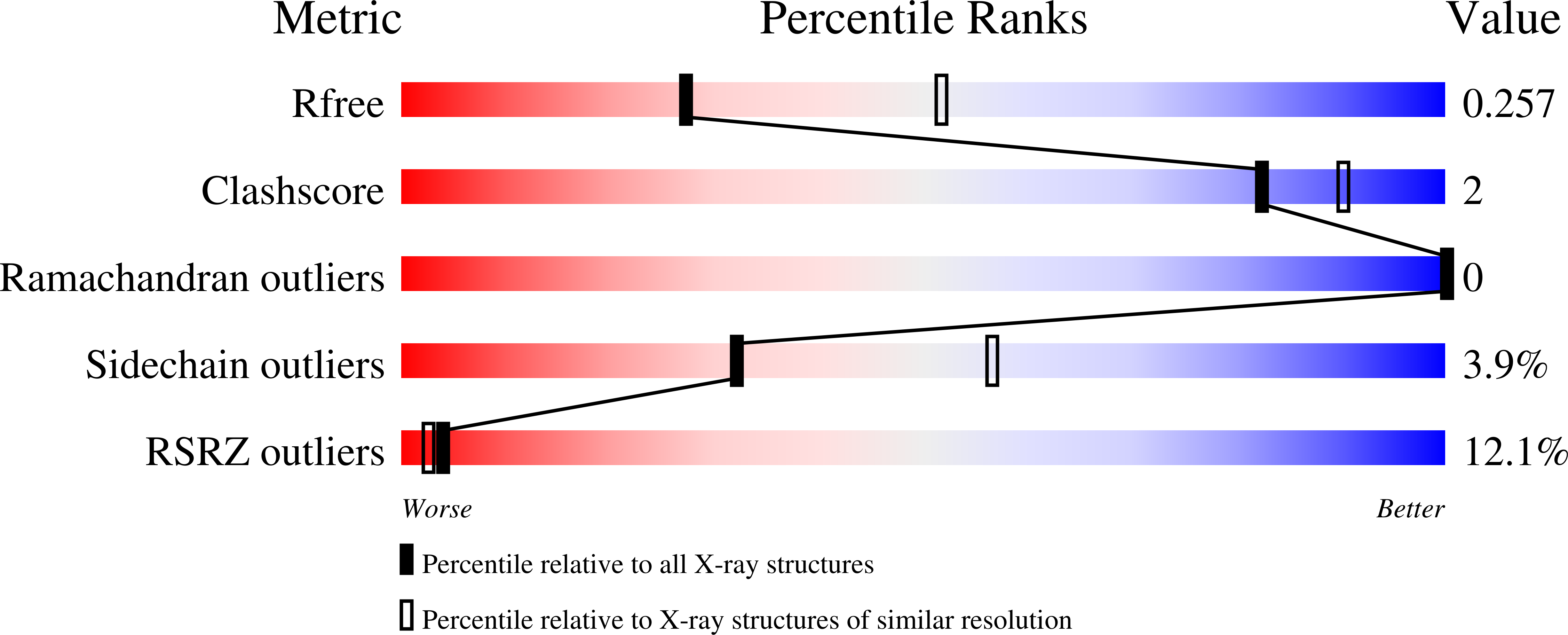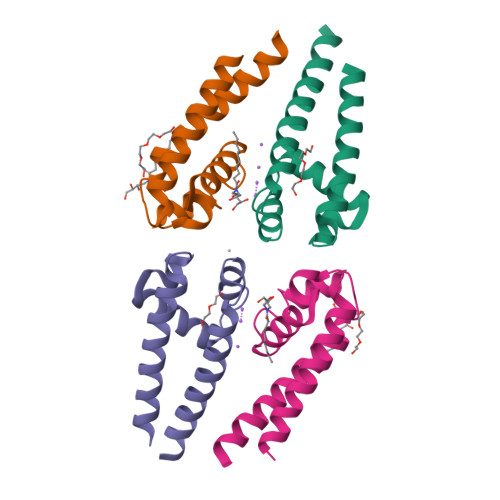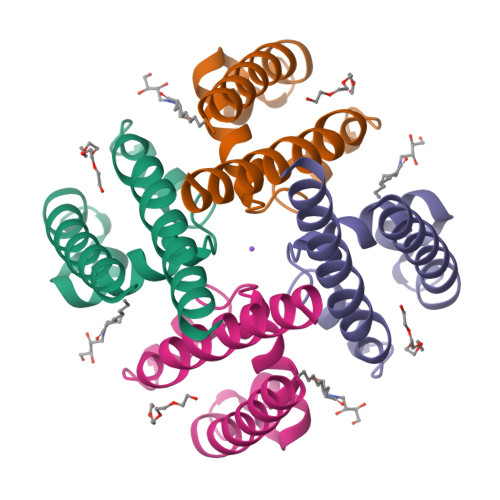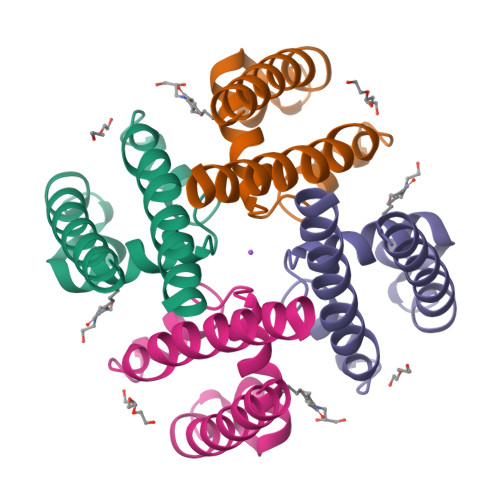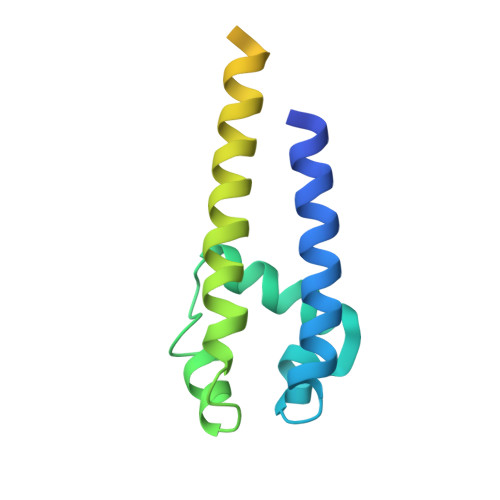Molecular basis of ion permeability in a voltage-gated sodium channel.
Naylor, C.E., Bagneris, C., DeCaen, P.G., Sula, A., Scaglione, A., Clapham, D.E., Wallace, B.A.(2016) EMBO J 35: 820-830
- PubMed: 26873592
- DOI: https://doi.org/10.15252/embj.201593285
- Primary Citation of Related Structures:
4X88, 4X89, 4X8A, 5BZB - PubMed Abstract:
Voltage-gated sodium channels are essential for electrical signalling across cell membranes. They exhibit strong selectivities for sodium ions over other cations, enabling the finely tuned cascade of events associated with action potentials. This paper describes the ion permeability characteristics and the crystal structure of a prokaryotic sodium channel, showing for the first time the detailed locations of sodium ions in the selectivity filter of a sodium channel. Electrostatic calculations based on the structure are consistent with the relative cation permeability ratios (Na(+) ≈ Li(+) ≫ K(+), Ca(2+), Mg(2+)) measured for these channels. In an E178D selectivity filter mutant constructed to have altered ion selectivities, the sodium ion binding site nearest the extracellular side is missing. Unlike potassium ions in potassium channels, the sodium ions in these channels appear to be hydrated and are associated with side chains of the selectivity filter residues, rather than polypeptide backbones.
Organizational Affiliation:
Institute of Structural and Molecular Biology, Birkbeck College University of London, London, UK.







